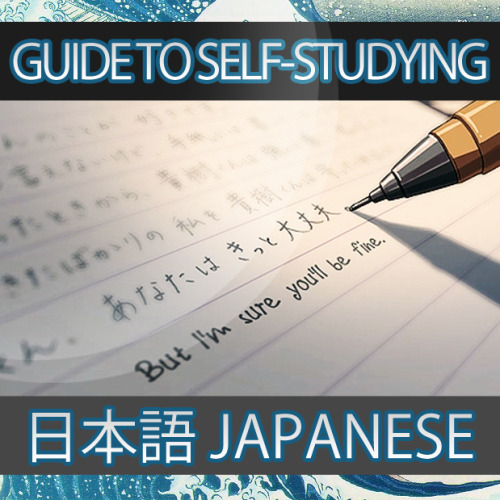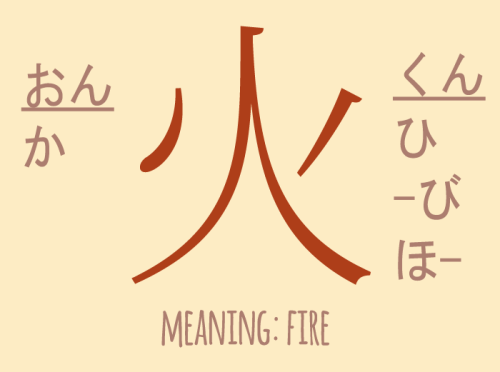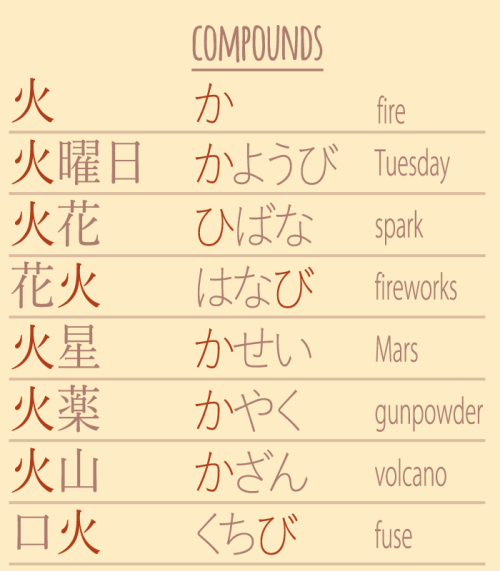Occupationsしょくぎょう
Occupationsしょくぎょう
仕事 (shigoto) = job
いしゃ(isha) = doctor
会社 (kaisha) = company
会社いん (kaishain) = company employee
かしゅ (kashu) = singer
かんごふ (kangofu) = nurse
先生 (sensei) = teacher
ぎんこういん (ginkouin) = banker
やくざいし (yakuzaishi) = pharmacist
せいじ家 (seijika) = politician
はいしゃ (haisha) = dentist
はいしゅう (haishuu) = actor
じょゆう (joyuu) = actress
ひ書 (hisho) = secretary
びようし (biyoushi) = beautician
べんごし (bengoshi) = lawyer
店いん (tenin) = shop assisstant
アルバイト (arubaito) = part-time job
じきゅう (jikyuu)= hourly rate
しょう来 (shourai) = future
More Posts from Earthquakedeer and Others

Guide to Self-Studying Japanese
A large proportion of Japanese learners self-study. Finding places to learn Japanese in a classroom environment can be difficult and expensive. Here’s a guide on how you can learn Japanese for free and from the comfort of your sofa.

When learning Japanese, the most important step is to learn Hiragana and Katakana, the writing alphabets of Japanese.
The best way I’ve found to do that is to make flashcards. Make sure you practice writing as well as recognizing them, this will not only be a great skill to have but will also reinforce the shapes in your mind.
Resources:
[Hiragana 42], the best guide I’ve found to learn the Hiragana (in a day!) [Hiranana and Katakana Quiz Site] [Kana Invaders Game] [Anki] An amazing program that will make sure you never forget any Kana….

The next step is to start learning vocabulary. Where can you find what to learn? Use a site like Memrise to find word lists (for example, there is a word list for all the vocabulary in starter textbooks like Genki), and use the amazing interface to learn them and keep them in your long term memory.
Resources:
[Memrise] as mentioned above to find and learn vocabulary lists. [Most Common Words List] [Anki] An amazing program that will make sure you never forget any Vocabulary….

While encountering vocabulary, you’re likely to be coming across super-complicated-looking Kanji. You can learn Kanji through Memrise as above, but there are some other websites that may be of interest.
Resources:
[Kanji Damage] A great site where you can learn Kanji through mnemonics. [WaniKani] by the same people who make TextFugu can help you learn Kanji from scratch. [Anki] An amazing program that will make sure you never forget any Kanji….

The next step is to apply that new vocabulary to grammar points and start making sentences.
If you can’t get your hands on textbooks like Genki, don’t fear! There are a lot of great online grammar resources.
Resources:
[TextFugu] a highly rated ‘online textbook’ which will guide you right from the beginning of learning Japanese. [Guide to Japanese] another online textbook with a lot of grammar points and excellent explanations.

So you probably started to learn Japanese because you have some interest in Japanese media. Time to start using it to your advantage!
Aside from the obvious watching Anime, J-dramas and films, why not try Reading Japanese News? Watching Japanese TV? Just make sure you are making these activities productive - note down new vocabulary, add them to Anki, and keep learning! It’s much easier to learn things you’re interested in.

The most important but difficult part of self-studying Japanese is getting your own compositions checked. Utilize all that grammar and vocabulary and write a short piece, it could be a diary entry or a short essay. Get it recorded for you by a native on RhinoSpike, and checked for grammar and consistencies on Lang-8.These sites also give you the chance to connect with Japanese natives, and perhaps start up some language exchanges!
For more resources, take a look at my Ultimate Resources List
Any more tips? Please submit them here!
Dark German Vocab

Vergangenheit (f) - past Gegenwart (f) - present Zukunft (f) - future
Zeit (f) - time Zeitreise (f) - time travel Wurmloch (n) - wormhole schwarzes Loch (n) - black hole Maschine (f) - machine Zeitmaschine (f) - time machine
Kind(-er) (n) - child(-ren) Elternteil (m) - parent Fremder (m) - stranger Polizei (f) - police
Selbstmord (m) - suicide Brief (m) - letter Höhle (f) - cave Wald (m) - forest Atomkraftwerk (n) - nuclear power plant
vermisst [inf. vermissen] - missing [inf. to miss] verschwinden - to disappear
zweitausendneunzehn - 2019 neunzehnhundertsechsundachtzig - 1986 neunzehnhundertdreiundfünfzig - 1953
Let me know if there are any mistakes!
白い目で見る
しろいめでみる
to look coldly at; to turn a cold shoulder
彼は性格が悪いのでみんなが白い目で見ています。 かれ は せいかく が わるい ので みんな が しろいめでみています。 Because he has a bad personality, everyone looks at him scornfully.
(人)を白い目で見る: look at someone with disapproval / regard someone with disdain
Japanese Vocabulary : Using your phone in Japanese
[FRENCH BELOW]
This list is not complete, I will update it from time to time when I can ! Please note that I’m using a Samsung Galaxy S7 and there might be slight differences depending on the phone you have.
I will not put the terms written in katakana, as 1) you should know them 2) their meaning is usally easy to guess since most of the time they’re english words.
PS : If you’re learning French, note that there are quite a few words / expressions that are abbreviated !
PS2 : Also note that I put my phone back in English and French to get the best translations, but some words are “computer terms” so please check before using them in another context :)
I hope this will be useful :)
Cette liste n’est pas complète, je la mettrai à jour quand je pourrai! Prenez en compte le fait que j’utilise un Samsung Galaxy S7, donc il se peut qu’il y ait quelques différences avec d’autres téléphones.
Je ne mettrai pas les termes écrits en katakana : 1) vous devriez les connaître 2) si vous comprenez l’anglais leur sens est normalement simple à trouver, sinon il suffit d’aller chercher la signification (ce qui est bien plus facile que de chercher des kanjis qu’on ne connait pas…)
PS : J’ai remis mon téléphone en anglais et en français pour avoir la meilleure traduction, mais faîtes attention car certains mots sont des termes réservés à l’électronique et pourraient ne pas fonctionner dans un autre contexte !
ロックを解除(かいじょ)するには、スワイプしてください : Swipe screen to unlock / Faîtes glisser votre doigt sur l’écran pour déverrouiller.
機内(きない)モード : Airplane mode / Mode hors-ligne
省電力(しょうでんりょく) : Power saving / Eco. énergie
縦画面(たてがめん) : Portrait / Portrait
自動回転(じどうかいてん) : Auto rotate / Rotation auto.
位置情報(いちじょうほう) : Location / Position
全(すべ)て消去(しょうきょ) : Clear all / Effac. tout
通知設定(つうちせってい) : Notification setting / Param. notif.
電卓 (でんたく) : Calculator / Calculatrice
翻訳 (ほんやく) Translate / Traduction
連絡先 (れんらくさき) Contacts / Contacts
時計 (とけい) Clock / Horloge
電話 (でんわ) Phone / Téléphone
予約 (よやく) Schedule (a message) / Programmer (un message)
削除 (さくじょ) Delete / Supprimer
画像 (がぞう) Pictures / Photos
検索 (けんさく) Search / Rechercher
編集(へんしゅう) Edit / Modifier
全てを朗読(ろうどく)にする Mark all as read / Tout marquer comme lu
保護(ほご)メッセージ Locked messages / Messages verrouillés
お問(と)い合(あ)わせ Contact us / Nous contacter
履歴(りれき) Recents / Récents
作成(さくせい) Compose / Rédiger
番号 (ばんごう) Number / Numéro
入力 (にゅうりょく) Enter (a text) / Rédiger
共有 (きゅうゆう) Share / Partager
追加 (ついか) Add / Ajouter
非表示 (ひひょうじ) Hide / Masquer
貼(は)り付(つ)け Paste / Coller
作 (さく) Notes / Notes (Tumblr, Instagram…)
保存 (ほぞん) Save / Enregistrer
my favourite thing about the ancient egyptian numerals is that once you get to a certain point really high up in numbers you just have this little guy holding out his arms saying “a whole fuckin lot of numbers”



some compounds of one of my favourite kanji, 火
60 Japanese words for household objects

LIVING ROOM (リビング ribingu or 居間 ima)
1。 アーマチェア [āmuchea] ~ arm chair
2。電気スタンド [denki-sutando] ~ desk lamp; floor lamp
3。絵 [e] ~ painting
4。エアコン [eakon] ~ air conditioner
5。エンドテーブル [endo tēburu] ~ end table
6。電話 [denwa] ~ phone
7。ヒーター [hītā] ~ space heater
8。本棚 [hondana] ~ bookshelf; bookcase
9。コーヒーテールブ [kōhī tēburu] ~ coffee table
10。ソファー [sofā] ~ sofa
11。テレビ [terebi] ~ TV
BEDROOM (寝室 shinshitsu)
12。ベッド [beddo] ~ bed
13。ふとん [futon] ~ futon
14。カーテン [kāten] ~ curtains
15。枕 [makura] ~ pillow
16。目覚まし時計 [mezamashi-dokei] ~ alarm clock
17。毛布 [mōfu] ~ blanket
18。ナイトスタンド [naitosutando] ~ nightstand
19。シーツ [shītsu] ~ sheet
20。たんす [tansu] ~ chest of drawers
BATHROOM (バスルーム or 風呂場)
21。バスタオル [basu-taoru] ~ bath towel
22。ブラシ [burashi] ~ brush
23。ドライヤー [doraiyā] ~ hair dryer
24。歯ブラシ [ha-burashi] ~ toothbrush
25。鏡 [kagami] ~ mirror
26。シャワー [shawā] ~ shower
27。石鹸 [sekken] ~ soap
28。トイレットペーパー [toiretto pēpā] ~ toilet paper
DINING ROOM (ダイニング or 食堂)
29。フォーク [fōku] ~ fork
30。コップ [koppu] ~ glass; cup
31。ナイフ [naifu] ~ table knife
32。紙ナプキン [kami-napukin] ~ napkin
33。皿 [sara] ~ plate
34。スパチュラ [supachura] ~ spatula
35。スプーン [supūn] ~ spoon
36。テーブルクロス [tēburu-kurosu] ~ table cloth
37。器 [utsuwa] ~ bowl
KITCHEN (キツチン or 台所)
38。電子レンジ [denshi-renji] ~ mircrowave oven
39。冷凍庫 [reitōko] or フリーザー [furīzā] ~ freezer
40。椅子 [isu] ~ chair
41。コンロ [konro] ~ stove
42。キャビネット[kyabinetto] ~ cabinet
43。オーブン [ōbun] ~ oven
44。冷蔵庫 [reizōko] ~ refrigerator
45。食器洗い機 [shokki-arai-ki] ~ dishwasher
46。流し台 [nagashidai] or シンク [shinku] ~ sink
47。テーブル [tēburu] ~ table
48。ボール [bōru] ~ mixing bowl
49。フードプロセッサー [fūdo purosessā] ~ food processor
50。フライパン [furaipan] ~ frying pan
51。包丁 [hōchō] ~ chef’s knife
52。泡立て器 [awatateki] ~ whisk
53。計量カップ [keiryō kappu] ~ measuring cup
54。計量スプーン [keiryō supūn] ~ measuring spoon
55。コーヒーメーカー [kōhīmēkā] ~ coffee maker
56。まな板 [manaita] ~ cutting board
57。ミキサー [mikisā] ~ blender
58。鍋 [nabe] ~ pot
59。トースター [tōsutā] ~ toaster
60。ざる [zaru] ~ colander

A small list of verbs! Tomorrow I will post a note sheet for conjugating verbs. For now, just remember that ます is present tense when dealing with verbs.




Hakone Japan - 2017
Shot by Sony α6300
More images on www.instagram.com/valiantjapanese
lifehack: whenever someone asks me to say something in a language I'm learning, I literally just translate the phrase "I don't know what you want me to say so I hope this is enough"
-
 shukaku4d reblogged this · 3 years ago
shukaku4d reblogged this · 3 years ago -
 pinplurple liked this · 5 years ago
pinplurple liked this · 5 years ago -
 seasonalskies reblogged this · 5 years ago
seasonalskies reblogged this · 5 years ago -
 burnedwerewolfstudent liked this · 5 years ago
burnedwerewolfstudent liked this · 5 years ago -
 shukaku4d liked this · 5 years ago
shukaku4d liked this · 5 years ago -
 stephaniejungg liked this · 5 years ago
stephaniejungg liked this · 5 years ago -
 galacticdemigod liked this · 5 years ago
galacticdemigod liked this · 5 years ago -
 the--s--laughterhouse reblogged this · 6 years ago
the--s--laughterhouse reblogged this · 6 years ago -
 the--s--laughterhouse liked this · 6 years ago
the--s--laughterhouse liked this · 6 years ago -
 enslinporter liked this · 6 years ago
enslinporter liked this · 6 years ago -
 thesuntitanswife liked this · 6 years ago
thesuntitanswife liked this · 6 years ago -
 nordicsymphony reblogged this · 6 years ago
nordicsymphony reblogged this · 6 years ago -
 silverninja48 liked this · 6 years ago
silverninja48 liked this · 6 years ago -
 nordicsymphony liked this · 6 years ago
nordicsymphony liked this · 6 years ago -
 if-i-want-to-dance reblogged this · 6 years ago
if-i-want-to-dance reblogged this · 6 years ago -
 meitaldj99 liked this · 6 years ago
meitaldj99 liked this · 6 years ago -
 moonchild-where-are-you liked this · 6 years ago
moonchild-where-are-you liked this · 6 years ago -
 sam-gets-it-together liked this · 6 years ago
sam-gets-it-together liked this · 6 years ago -
 thewatcheringern reblogged this · 6 years ago
thewatcheringern reblogged this · 6 years ago -
 iwantsheratotopme-blog liked this · 6 years ago
iwantsheratotopme-blog liked this · 6 years ago -
 samuraigiggles liked this · 6 years ago
samuraigiggles liked this · 6 years ago -
 guidedbythesoul liked this · 6 years ago
guidedbythesoul liked this · 6 years ago -
 irrationalnerd liked this · 6 years ago
irrationalnerd liked this · 6 years ago -
 eatjinenthusiast reblogged this · 6 years ago
eatjinenthusiast reblogged this · 6 years ago -
 toucanmoll liked this · 6 years ago
toucanmoll liked this · 6 years ago -
 octopusfool liked this · 6 years ago
octopusfool liked this · 6 years ago -
 got7xstudying-blog liked this · 6 years ago
got7xstudying-blog liked this · 6 years ago -
 merlapromlp-blog reblogged this · 6 years ago
merlapromlp-blog reblogged this · 6 years ago -
 merlapromlp-blog liked this · 6 years ago
merlapromlp-blog liked this · 6 years ago -
 maniccupcakes reblogged this · 6 years ago
maniccupcakes reblogged this · 6 years ago -
 cptncassianjandor liked this · 6 years ago
cptncassianjandor liked this · 6 years ago -
 citylightmichael reblogged this · 7 years ago
citylightmichael reblogged this · 7 years ago -
 jay-blue-blog reblogged this · 7 years ago
jay-blue-blog reblogged this · 7 years ago -
 jay-blue-blog liked this · 7 years ago
jay-blue-blog liked this · 7 years ago -
 maiisme1 reblogged this · 7 years ago
maiisme1 reblogged this · 7 years ago -
 maiisme1 liked this · 7 years ago
maiisme1 liked this · 7 years ago -
 zoozybeencloned liked this · 7 years ago
zoozybeencloned liked this · 7 years ago -
 reinafifi liked this · 7 years ago
reinafifi liked this · 7 years ago -
 reinafifi reblogged this · 7 years ago
reinafifi reblogged this · 7 years ago -
 sofieemcqueen-blog reblogged this · 7 years ago
sofieemcqueen-blog reblogged this · 7 years ago -
 geniusatrest reblogged this · 7 years ago
geniusatrest reblogged this · 7 years ago -
 kenshikazuma1 reblogged this · 7 years ago
kenshikazuma1 reblogged this · 7 years ago
Just a person learning Japanese. Self-learner. If you're also studying Japanese and want to practice with someone (and you're also very much a beginner) then message me! はじめまして! さびーなです。よとしく!
196 posts